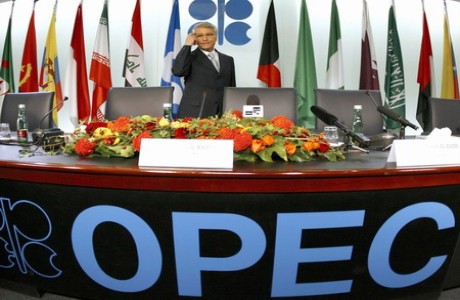Oil producing cartel OPEC has hit out at the International Energy Agency (IEA) for choosing to release strategic reserves of oil on to the market.
Following a meeting between OPEC and European Union officials in Vienna on Monday, secretary general Abdalla El-Badri said it sees “no reason” for the release.
El-Badri is quoted as having said he hopes the IEA will “refrain from using this practice”, stating that stocks are supposed to be deployed in emergencies, not for “commercial activity”.
The IEA made the shock announcement last Thursday to release 60 million barrels of oil in the coming month in response to the ongoing disruption of oil supplies in Libya.
The 28-member organisation said “greater tightness in the oil market threatens to undermine the fragile global economic recovery.”
As a result, IEA member countries agreed to make two million barrels of oil per day available from their emergency stocks over an initial period of 30 days.
It is only the third time in its 37-year history that the IEA has called on its reserves and was prompted by OPEC’s failure to reach a consensus on raising production quotas during a meeting at the start of June.
But during Monday’s meeting, OPEC painted a less desperate picture of the market, stressing that there was no need for additional supply in the market, adding that the physical market continues to be supported by “above-average trend growth” across the major producing countries.
However, analysts have been quick to note that the IEA’s decision to release more stocks may not have the desired effect on prices.
While prices fell $10 in the wake of the announcement, it looks paltry in comparison to the 30% plunge witnessed after it released supplies in the wake of Hurricane Katrina.
Goldman Sachs issued a note in which it said that while the addition of 60 million barrels of oil to the market would push down near-term Brent crude oil prices by $10-12 per barrel, it will have less of an impact on prices further out the curve as the oil would be absorbed to meet current demand.
Deutsche Bank analysts hailed it a “risky move, since it is a mostly short-term fix to a problem with many long-term components.”
They added: “OPEC’s production of oil today remains about three million barrels per day below the peak level of mid-2008. With the demand for oil rising rapidly and the supply of crude stagnant, increases in oil prices are hardly a puzzle.”
Deutsche Bank fears that the IEA may be tempted to extend the draw for an additional 30 days, but at some point fundamentally tighter markets will force it to surrender to higher prices.
Amrita Sen, analyst at Barclays Capital, said that while it might be bearish for prices in the short-term, the implications of the release are far greater and longer term, threatening to jeopardise consumer-producer relationships in the oil market and placing upward pressure on prices by year-end and into next year.
“In general, past experience has been that producer governments have not responded well to consumer governments’ public requests that output can be raised, and most definitely not when, despite an accommodative stance by key producers, the consumer government almost takes over the role of the marginal supplier to the market.”
Sen believes that the release sends out the wrong signal to the market, particularly as Saudi Arabia has already indicated its commitment to supply customers with crude it needs.
“The net result will likely be lower Saudi volumes by the end of 2011 and, once the temporary stock release is over, the flow of Saudi Arabian crude could dry up, tightening balances by year-end and into 2012,” she warns.



